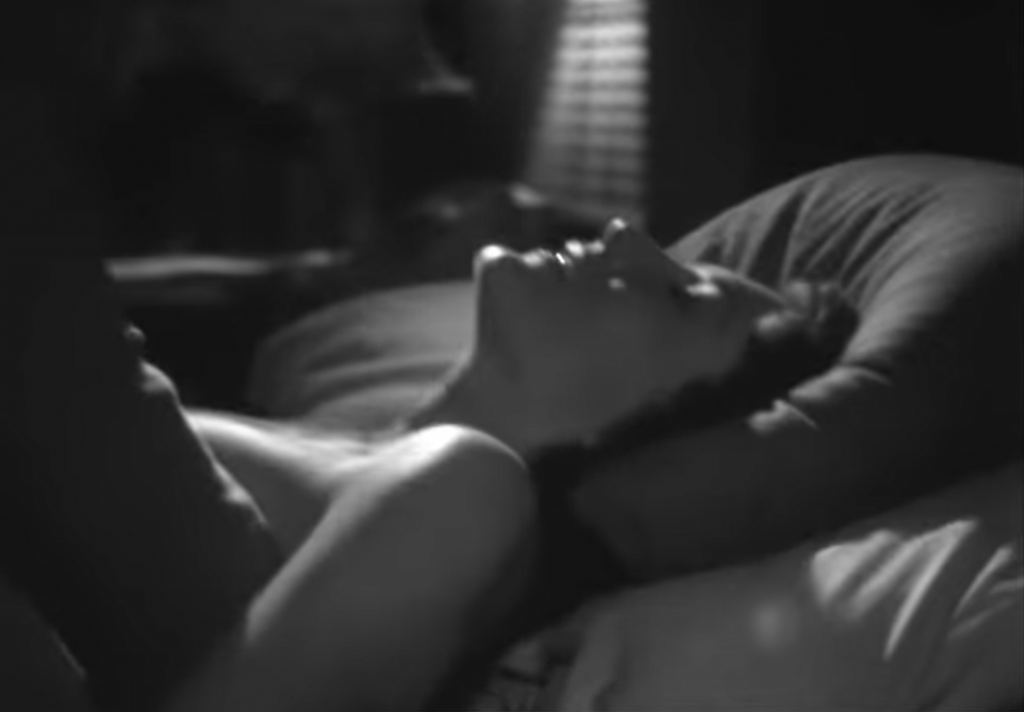10 Years 10 Films (10Y10F) is a project to display embedded YouTube selections of cinema history. This is Decade Seven of a series that aims for a quick time-lapse view of how movie technology and style has developed throughout the world – one clip each year – from 1888 through 2017, starting with the foundations to see how filmmakers build or deconstruct them.
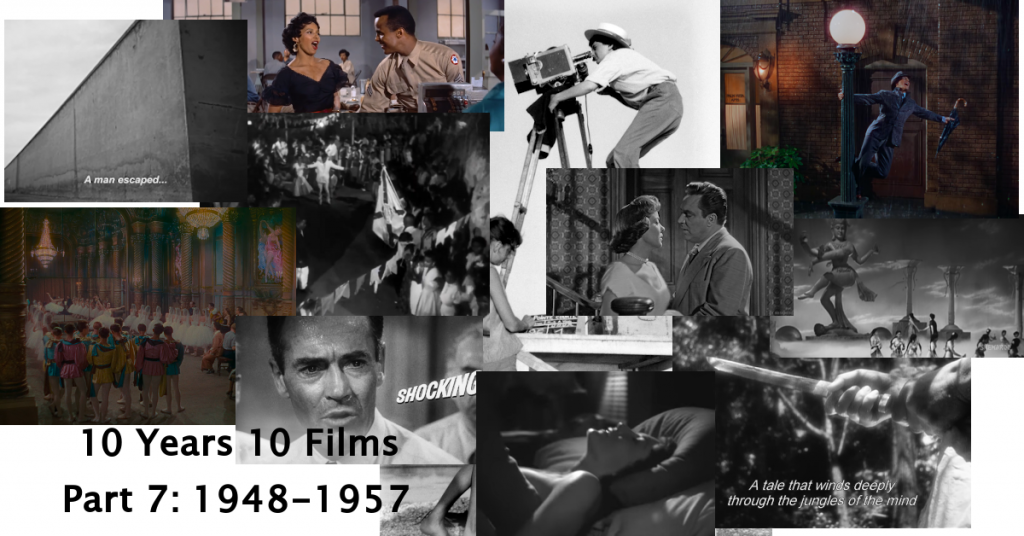
Seven decades of 10Y10F and we’re finally halfway into cinema history (as of this publication date, 2022). While you read the intro, here’s Little Richard, the “Architect of Rock ‘n Roll,” performing “Long Tall Sally” in the film Don’t Knock the Rock – 1956, the year rock ‘n roll exploded.
We’re finally starting to get into an era of cinema that many people alive now in 2022 can recall seeing when they were young, or their parents or grandparents have passed on the love of these films. Several other factors contribute to a more modern feel of the films in this era. The Mid-Atlantic accent (think Katharine Hepburn or Vincent Price) was falling out of vogue, with a natural acting voice in its place. Color, widescreen, and stereo became more popular at this time, as well.
Communist blacklisting started in 1947 and continued into the 1950s, ruining the livelihood and safety of hundreds of actors and crew members. Blacklisted industry members were not eligible for Oscars until 1959. Similarly, the fight for integration led to the dissolution of African American “race films.”
Television’s arrival in 1948 also changed the film industry. Germany had pioneered the technology from 1935-1944, but it was in 1948 that four major TV networks in the U.S. began broadcasting seven nights a week. The ten films of each 10Y10F decade do not include TV, but it’s worth mentioning here, with shows like I Love Lucy (51-57), Amos ‘n Andy (51-53), Superman (52-58), Ed Sullivan (48-71), and the ongoing Meet the Press (47-).
The 1948 Paramount antitrust lawsuit marked the end of the “Golden Age of Hollywood.” Television regulations were strict, so movies in theaters featured more adult content than ever before. More about this on History.com: How TV Killed Hollywood’s Golden Age. Values were changing. Anti-hero actors like Marlon Brando, Marilyn Monroe, and James Dean added a type of sex appeal that was still forbidden by the Hollywood Code, but pushed the envelope more than ever.
In Decade Eight (1958-1967), we’ll see the decline of the Hollywood Code, a New Wave of international cinema, and a cultural & sexual revolution.
Click on the Expand arrow for more details and additional films of note for that year. Now that we’re past the date of most films being in the public domain, I’ve linked the YouTube videos directly to the official trailer/rental whenever possible. Other disclaimers and an embedded YouTube playlist of the 10 films highlighted here are at the end of this post.*
10Y10F Series:
I 1888-1897, II 1898-1907,
III 1908-1917, IV 1918-1927,
V 1928-1937, VI 1938-1947,
VII 1948-1957 …
/ Collapse All ˄
1948 – The Red Shoes [screenshots] (Powell & Pressburger; England)
Victoria Page (Moira Shearer) tests her dedication to the ballet by choosing between her career and a romance with composer Julian Craster (Marius Goring). If you’re following 10Y10F closely, you’ll notice that I mentioned directors Michael Powell & Emeric Pressburger as a 1947 runner-up. Here, they present another beautiful Technicolor film with a 17-minute ballet centerpiece (based on the fairy tale of the title). Expand
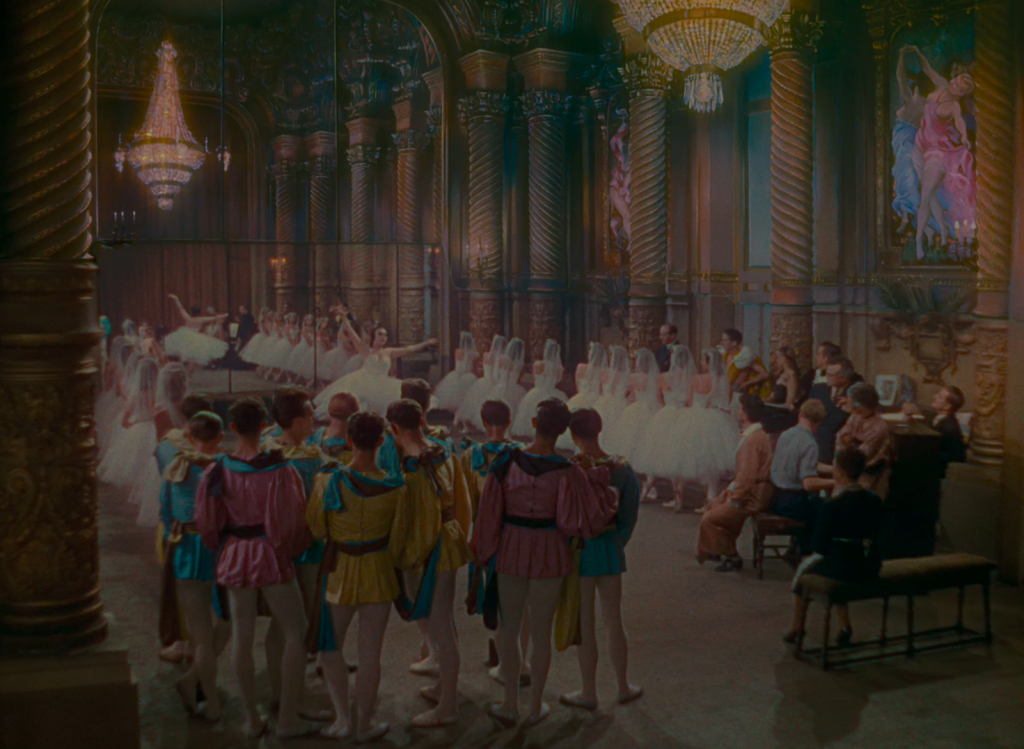 133min. The Archers. England. The December 2021 release was one of Criterion’s first 4K Ultra-HD restorations. Available for purchase on YouTube.
133min. The Archers. England. The December 2021 release was one of Criterion’s first 4K Ultra-HD restorations. Available for purchase on YouTube.
Other film(s): Bicycle Thieves (Ladri di biciclette. 89min. Italy.) The story of a poor father and his son searching in post-World War II Rome for his stolen bicycle, without which he will lose his job. Director Vittorio De Sica was one of the primary Italian neorealist filmmakers, alongside Roberto Rossellini and others. See also my Comparing De Sica and De Seta post.
Strange Victory (64min. Target Films. USA.) A largely-overlooked but important documentary about post-WWII racism and fascism. I see no trace of it on YouTube, but the official Leo Hurwitz (the director) website has the entire film streaming on Vimeo.
World events in 1948: The US vs. Paramount anti-trust case in the Supreme Court results in a number of decrees for Hollywood studios to divest their movie theaters. “Albert I” becomes the first primate astronaut, one of many sent up in a V-2 rocket. Columbia introduces the LP phonograph record. President Figueres Ferrer demilitarizes Costa Rica, the first country in history to do so. Cadillac introduces the tail fin, starting a craze lasting through the 1950s. Kodak ends nitrate base 35mm film production in favor of cellulose triacetate (safety film). Births: Carl Weathers, American actor and footballer. John Carpenter, American filmmaker. Kathy Bates, American actress. Catherine Breillat, French director. Samuel L. Jackson, American actor.
1949 – Death is a Caress (Carlmar; Norway)
The passionate and tempestuous liaison between mechanic Erik (Claus Wiese) and society woman Sonja (Hjalmar Riiser-Larsen). Director Edith Carlmar’s first film and a fine example of both the social issues she explored and censorship boundaries she pushed. Expand
Other film(s): The Emperor’s Nightingale (Císařův slavík. 64min. Jiří Trnka and Miloš Makovec. Czechoslovakia.) A unique stop-motion/live action film about the Hans Christian Andersen fairy tale. (Coincidentally, The Red Shoes is also based on an Andersen tale.) Presented here from the American dubbed version, narrated by Boris Karloff.
World events in 1949: The first Emmy Awards for television are held in Hollywood. Between 1949 and 1954, a total of 109 anti-Communist investigations were conducted in Congress by the House Un-American Activities Committee and other committees, most under the direction of Senator Joseph McCarthy and J. Edgar Hoover (director of the FBI from 1924-1972). The republics of Ireland, China (mainland and Taiwan), and Germany (East and West) are established. English astronomer Fred Hoyle coins the term Big Bang. Births: American actors Andy Kaufman, John Belushi, Jessica Lange, Pam Grier, Meryl Streep, Sigourney Weaver, and Jeff Bridges. Spanish director Pedro Almodóvar.
1950 – Rashomon [trailer] (Kurosawa; Japan)
Starring Toshiro Mifune, Machiko Kyō, Masayuki Mori, and Takashi Shimura as various people who describe how a samurai was murdered in a forest. The plot and characters are based upon Ryunosuke Akutagawa’s short story “In a Grove”, with the title and framing story being based on “Rashōmon,” another short story by Akutagawa. With writing and directing credits from the 1940s into the 1990s, it’s a challenge to pick just one Akira Kurosawa film, but Rashomon singularly raised Japanese cinema’s influence on the international market.Expand
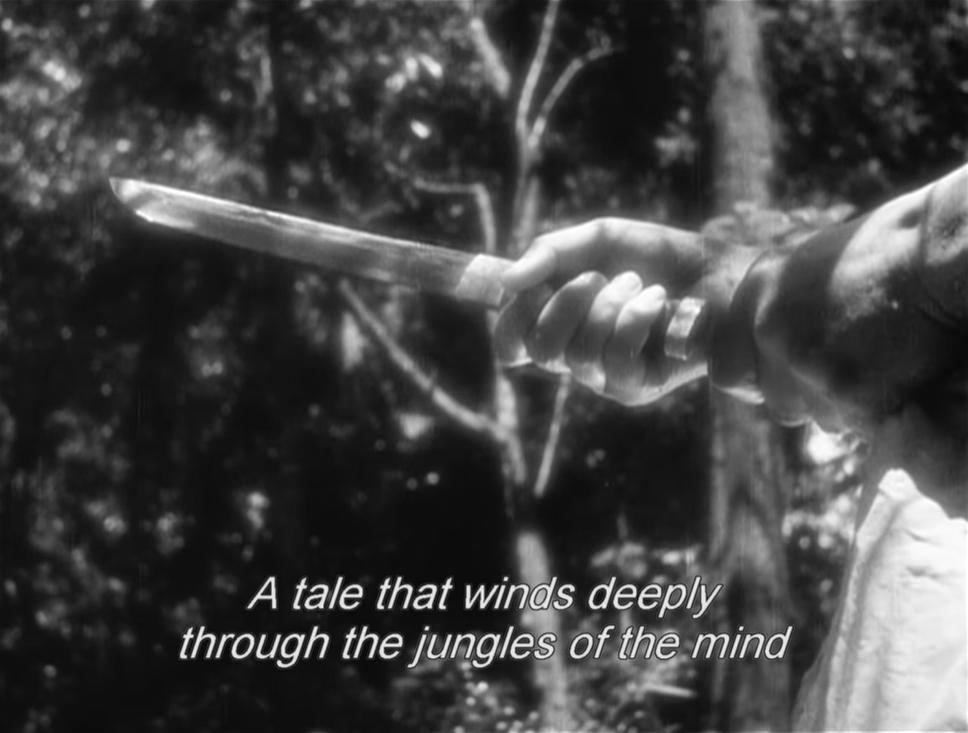 羅生門 lit. City Gate. 109min. Daiei Film.
羅生門 lit. City Gate. 109min. Daiei Film.
Other film(s): A Song of Love (Un chant d’amour. 25min. Jean Genet. Paris, France.) Avant-garde silent film presenting the love of two prisoners. One of the earliest erotic gay films with nudity.
Sunset Boulevard [clip] (110min. Billy Wilder. Paramount. Hollywood, USA.) A screenwriter develops a dangerous relationship with a faded film star determined to make a triumphant return. A cynical view of Hollywood, compared to the musical Singin’ in the Rain (1952). Several silent filmmakers have cameos or large roles: starring Gloria Swanson, with von Stroheim, DeMille, Hetta Hopper, Buster Keaton, H.B. Warner, and Anna Q. Nilsson. Edith Head, the costume designer, certainly deserves a mention here, as well. If you look up the top Hollywood films of the 1940s-1960s, there’s a good chance that she was the designer. She holds the record as the woman with the most Oscars (8). Available for purchase on YouTube.
World events in 1950: The Fender Telecaster (originally “Broadcaster”) makes its debut as one of the earliest and most successful solid-body electric guitars. Apartheid formally begins in South Africa. The Korean War begins. Births: Cybill Shepherd, American actress. John Hughes, American filmmaker. Alan Silvestri, American film composer. Chantal Akerman, Belgian director. Bill Murray, American actor.
1951 – Awaara (Kapoor; India)
https://youtu.be/u4mjCJaJe-g ← full film
A poor young man named Raj joins a criminal gang to feed his mother. But when he falls in love with Rita, he decides to reform himself for her. Owing to its popularity in so many countries, the film is one of the most successful of all time. Director & star Raj Kapoor (“Charlie Chaplin of Indian Cinema”) was the most well-known of “The First Family of Bollywood” and had many relatives in the film industry. This is also one of the many collaborations Kapoor had with actress Nargis (Dutt) and screenwriter K.A. Abbas. Expand
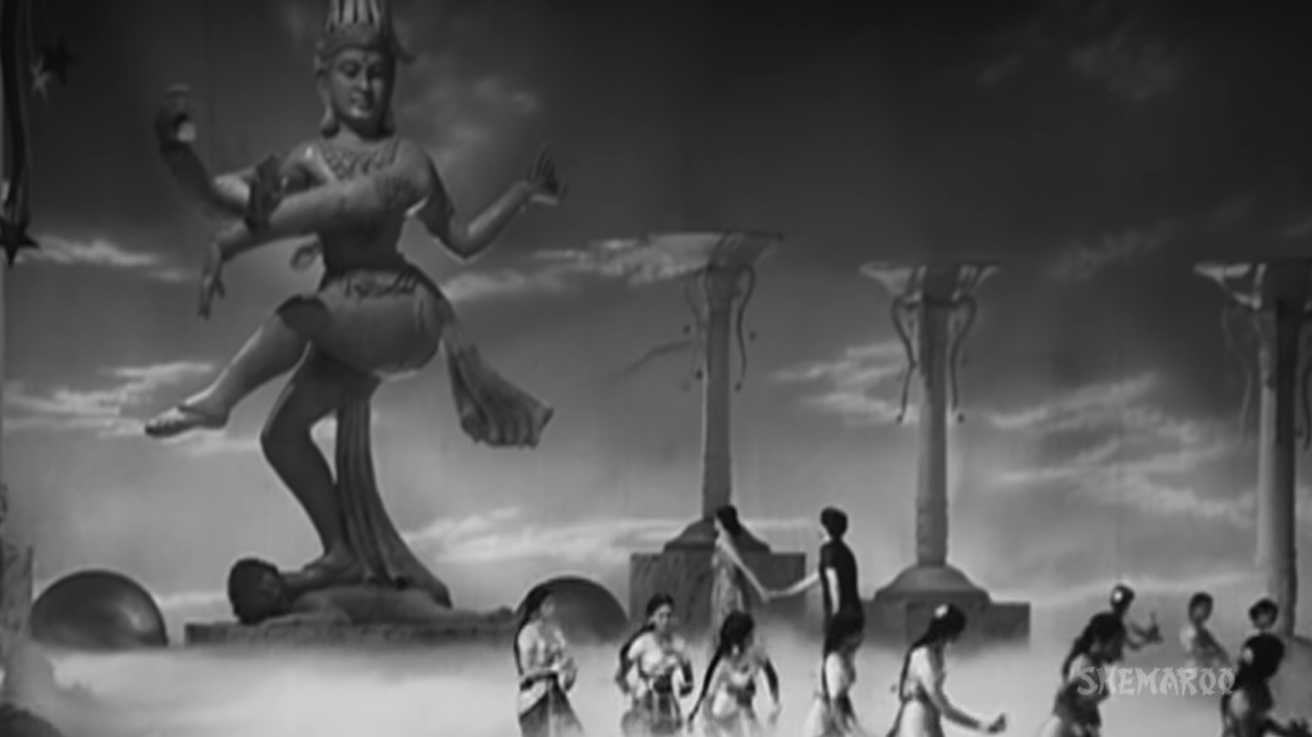 Awāra (आवारा) lit. The Vagabond or The Tramp. 165min. All India & R.K. Films. Bombay (Bollywood), India. Filmed in Academy Ratio – the video here is cropped on top and bottom.
Awāra (आवारा) lit. The Vagabond or The Tramp. 165min. All India & R.K. Films. Bombay (Bollywood), India. Filmed in Academy Ratio – the video here is cropped on top and bottom.
Other film(s): A Streetcar Named Desire [clip] (124min. Warner Bros. Hollywood, USA.) Disturbed Blanche DuBois (Vivien Leigh) moves in with her sister in New Orleans and is tormented by her brutish brother-in-law (Marlon Brando) while her reality crumbles around her. One of Elia Kazan’s many brilliant adaptations from a play, this one by Tennessee Williams. Available for purchase on YouTube.
Olivia [unofficial trailer] (aka The Pit of Loneliness. 95min. Jacqueline Audry. Filmsonor. France.) Late 19th-century in a finishing school for young girls. The principal, the fascinating Miss Julie, sows confusion in the heart of the newcomer, Olivia. Similar to the lesbian classic, Mädchen in Uniform (1931).
World events in 1951: The Wilhelm scream, one of the most frequently-used stock sound effects, is first used in the film Distant Drums; the scream get its name from “Pvt. Wilhelm” in The Charge at Feather River (1953). The first general-purpose business computer, UNIVAC, is sold to the U.S. Census Bureau. Births: Charo, Spanish American actress. James Newton Howard, American film composer. Robin Williams, American actor. Kathryn Bigelow, American director.
1952 – Singin’ in the Rain [clip] (Donen & Kelly; Hollywood)
A lighthearted depiction of Hollywood in the late 1920s, with the three stars portraying performers caught up in the transition from silent films to “talkies.” Gene Kelly and Stanley Donen co-directed and choreographed this musical. Also starring Donald O’Connor and Debbie Reynolds. Expand
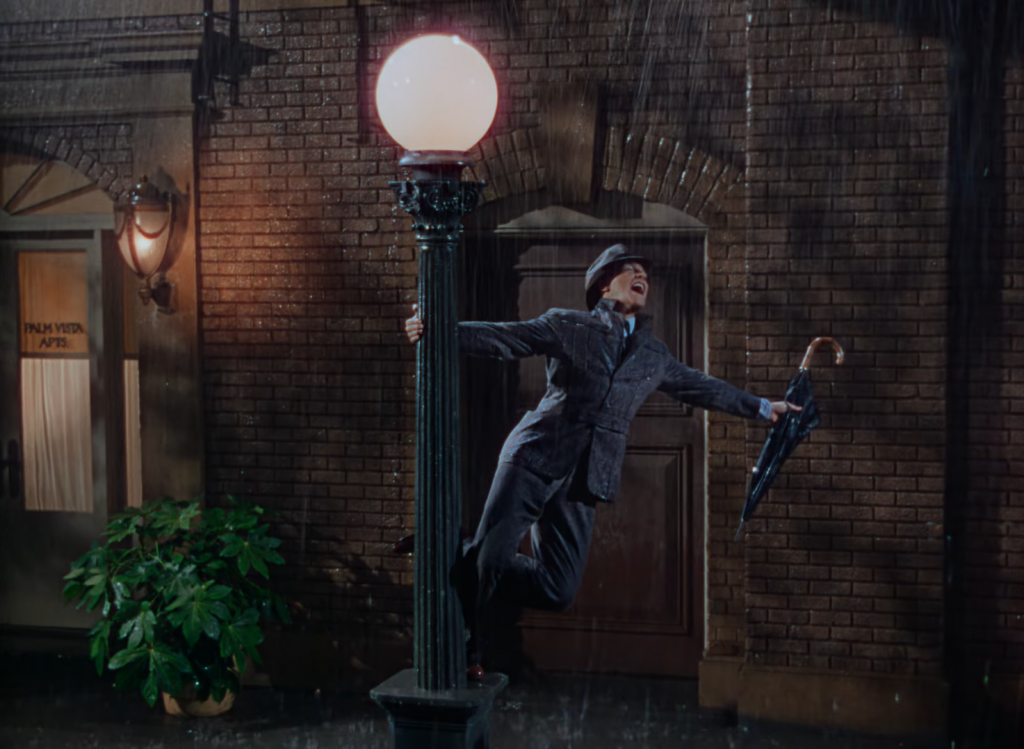 102min. MGM. Hollywood, USA. Available for purchase on YouTube.
102min. MGM. Hollywood, USA. Available for purchase on YouTube.
Other film(s): The Happy Family (aka Mr. Lord Says No. 81min. Apex. England.) A family resists the disruption caused by the construction of the Festival of Britain. One of Muriel Box’s many films as director in a nearly 40-year career.
World events in 1952: Elizabeth II is crowned queen at the age of 25. The Treaty of San Francisco ends the US occupation of Japan. The “Spiritual Leader” of Argentina, Evita, dies of cancer at 33 years old. NME is founded and publishes the first top music charts for the UK. Gibson releases its first solid-body electric guitar, the Les Paul. Births: Steven Seagal, Carol Kane, and Mandy Patinkin, American actors. Shohreh Aghdashloo, Iranian-American actress. Robert Zemeckis, American director. Isabella Rossellini, Italian actress. Nile Rodgers, American composer.
1953 – The Bigamist (Lupino; Hollywood)
A man secretly married to two women feels the pressure of his deceit. Ida Lupino was the most prominent writer/actress/director/producer working in the “Hollywood system.” Expand
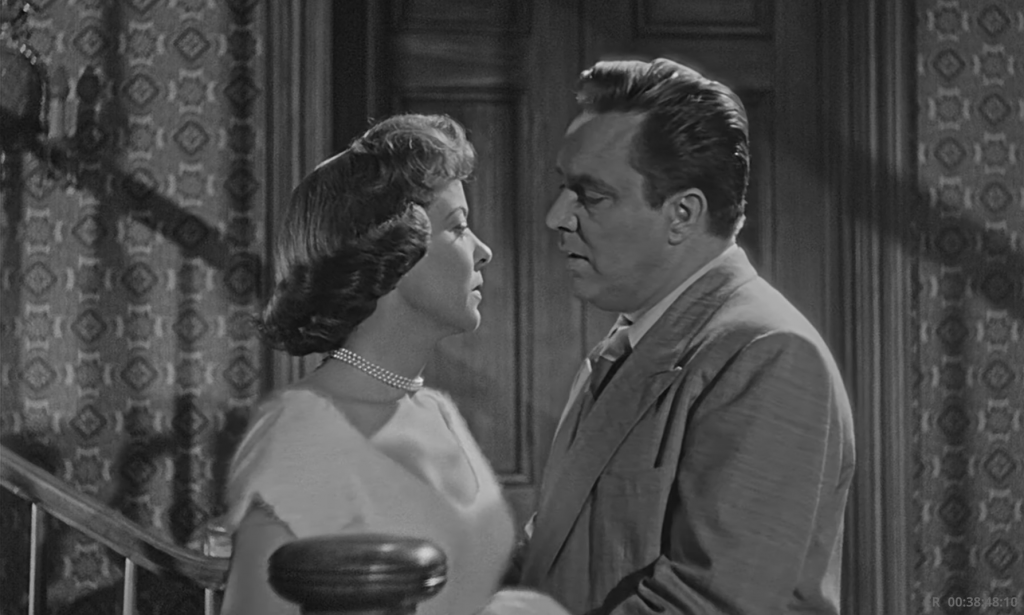 79min. The Filmmakers. USA. In the public domain.
79min. The Filmmakers. USA. In the public domain.
Other film(s): Tokyo Story [trailer] (136min. Yasujirô Ozu. Shochiku. Tokyo, Japan.) An old couple visit their children and grandchildren in the city, but receive little attention. This is the last of Ozu’s “Noriko Trilogy,” the character played by Setsuko Hara. Available for purchase on YouTube.
World events in 1953: Joseph Stalin (leader of the USSR since 1924) dies from a stroke. The US tests 11 nuclear bombs in Nevada. The double-helix model of DNA is discovered. Ian Fleming’s first James Bond novel, Casino Royale, is published in the UK. Sir Edmund Hillary from New Zealand and Tenzing Norgay from Nepal become the first to reach the summit of Mount Everest. The Baton Rouge bus boycott serves as a model for future civil rights, such as the 1955 Montgomery bus boycott. The Korean War ends, resulting in China’s recognition of North and South republics. Births: Mary Steenburgen. Isabelle Huppert. Kim Basinger.
1954 – Carmen Jones [clip] (Preminger; Hollywood)
Contemporary version of the Bizet opera, with new lyrics and an African-American cast. Starring Harry Belafonte, Dorothy Dandridge, Pearl Bailey, Olga James, and Joe Adams. Expand
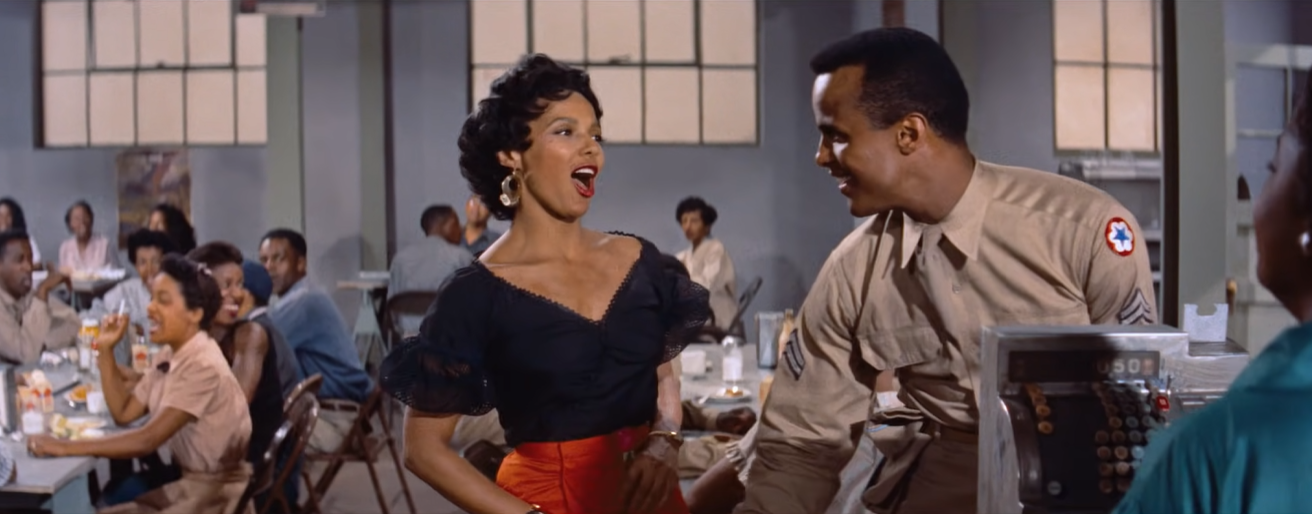 104min. Otto Preminger. 20th Century Fox, USA. Available for purchase on YouTube.
104min. Otto Preminger. 20th Century Fox, USA. Available for purchase on YouTube.
Other film(s): Godzilla (ゴジラ / Gojira. 96min. Ishirô Honda. Japan.) American nuclear-weapons testing results in the creation of a seemingly unstoppable, dinosaur-like beast. The Guiness Books of World records has awarded Godzilla as the longest-running film franchise. Currently free on YouTube, with ads.
World events in 1954: Roger Bannister runs the first sub-four minute mile, in Oxford, England. Diane Leather becomes the first woman to run a sub-five minute mile, in Birmingham, England. The Fellowship of the Ring is published. Texas Instruments releases the first commercially manufactured transistor radio, the Regency TR-1. In Brown v. Board of Education, the U.S. Supreme Court rules that segregated schools are unconstitutional. Births: Oprah Winfrey. Ron Howard. Catherine O’Hara. Amy Heckerling. Rekha. Ang Lee. Denzel Washington.
1955 – Rio, 40 Degrees C. (Pereira dos Santos; Brazil)
[NOTE: Watch this better-quality YouTube version instead of what is embedded above. I only chose the latter because the better-quality link is marked “Age-restricted,” which is inaccurate in my opinion, so it cannot stream directly from Zepfanman.com.] Banned by Brazil’s Federal Department of Public Safety, Rio, 40 Degrees C. is a landmark film that ushered in the wave of Cinema Novo in Brazil. The film chronicles a day in the life of five peanut vendors from Rio de Janeiro’s favelas. This was one of the first Brazilian films to address the issues of race, poverty, and class. Expand
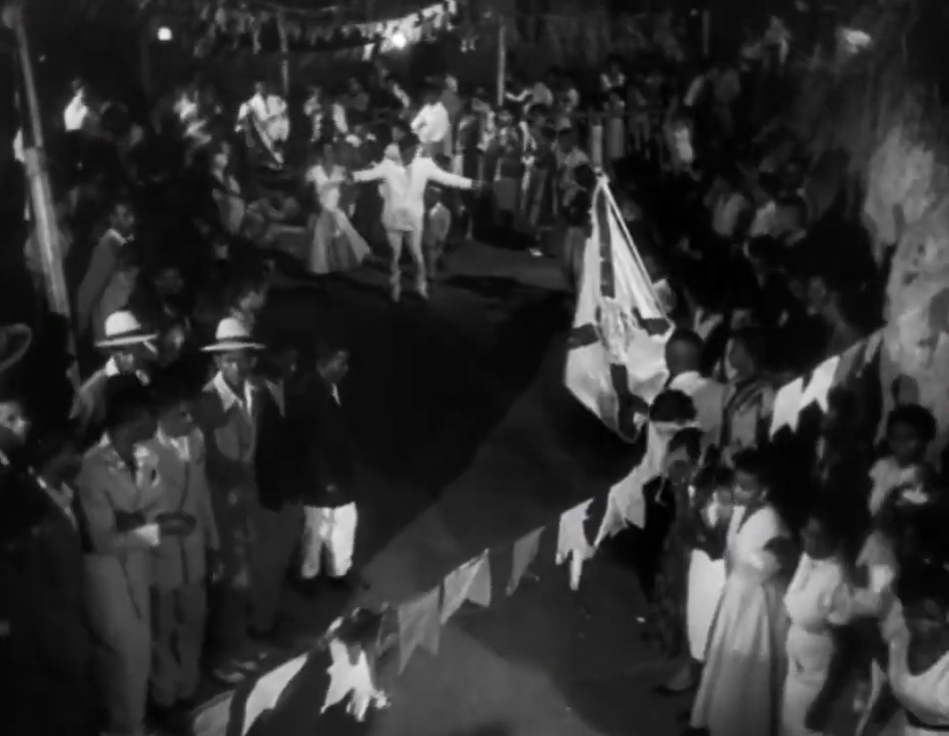 aka Rio, 40 Graus / Rio, 100 Degrees F. 91min. Equipe Moacyr Fenelon. Rio de Janeiro, Brazil. Available for purchase on YouTube.
aka Rio, 40 Graus / Rio, 100 Degrees F. 91min. Equipe Moacyr Fenelon. Rio de Janeiro, Brazil. Available for purchase on YouTube.
Other film(s): Rebel Without a Cause [clip] (111min. Nicholas Ray. Hollywood, USA.) Starring James Dean and released after his death, at the age of 24 in a car accident. Available for purchase on YouTube.
World events in 1955: Disneyland opens in California. Jim Henson creates his first Muppets as a college freshman for the Sam and Friends TV show. Jonas Salk’s polio vaccine is licensed – cases in the US fall from 35,000 in 1953 to 5,600 by 1957. By 1961 only 161 cases were recorded in the United States. The Vietnam War begins. Births: Rowan Atkinson. Kevin Costner. Bruce Willis. Reba McEntire. Chow Yun-fat. Béla Tarr. Whoopi Goldberg.
1956 – A Man Escaped [trailer] (Bresson; France)
Based on the memoirs of André Devigny, a member of the French Resistance held in Montluc prison by the occupying Germans during World War II. Before the French New Wave, there was Robert Bresson, with his brilliantly minimalistic filmmaking. He was also imprisoned by Germans during WWII. Expand
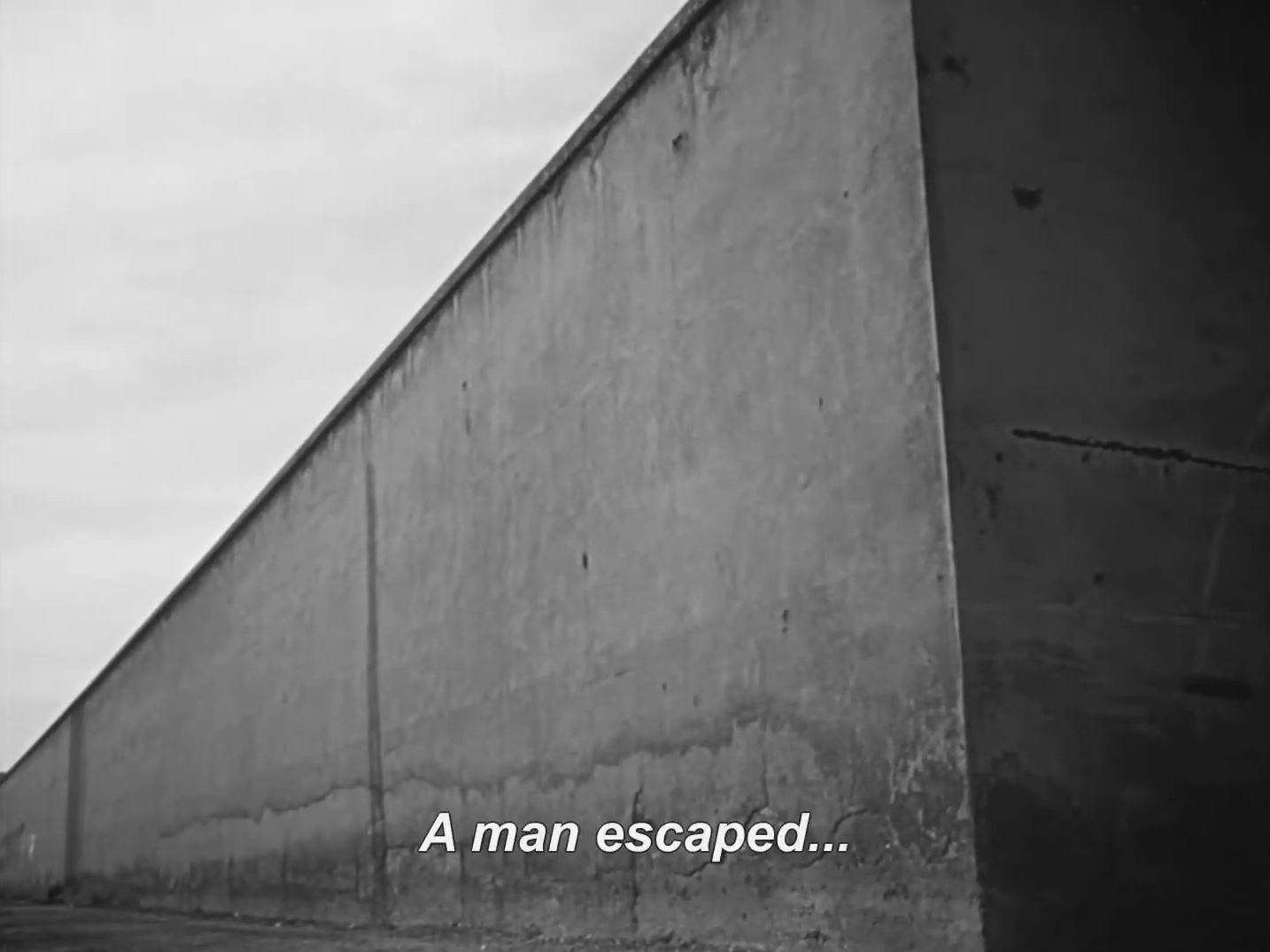 or: The Wind Bloweth Where It Listeth (French: Un condamné à mort s’est échappé ou Le vent souffle où il veut; literally, “One condemned to death escaped, or, the wind blows where it wants”). 101min. Gaumont. Saint-Maurice, Paris.
or: The Wind Bloweth Where It Listeth (French: Un condamné à mort s’est échappé ou Le vent souffle où il veut; literally, “One condemned to death escaped, or, the wind blows where it wants”). 101min. Gaumont. Saint-Maurice, Paris.
Other film(s): The Searchers [clip] (118min. Warner Bros. Hollywood, USA.) You can’t talk about cinema history without mentioning John Ford directing John Wayne. They made 14 movies together from 1939-1963. The Searchers is one of my favorites, thanks to the color cinematography of Momument Valley, Arizona, and a complex portrayal of cowboys in the late 1800s.
World events in 1956: 21-year-old Elvis Presley releases his debut album and shocks audiences on several TV appearances; also stars in his first film, Love Me Tender. Videotape is first demonstrated and revolutionizes the television recording format using cheaper magnetic tape instead of Kinescope film. The TAT-1 transatlantic telephone cable is inaugurated, carrying 36 channels. Castro, Guevara, and 82 men depart Mexico in the Granma “yacht” with revolutionary hopes upon their arrival in Cuba a week later. Bob Barker hosts his first TV game show, Truth or Consequences. Births: Mel Gibson. Geena Davis. Lars von Trier. Tom Hanks. Luis Guzmán.
1957 – 12 Angry Men [trailer] (Lumet; USA)
A jury of 12 men deliberate the conviction or acquittal of an 18-year old defendant on the basis of reasonable doubt; disagreement and conflict among them force the jurors to question their morals and values. The first and most well-respected of Sidney Lumet’s illustrious directorial career. Expand
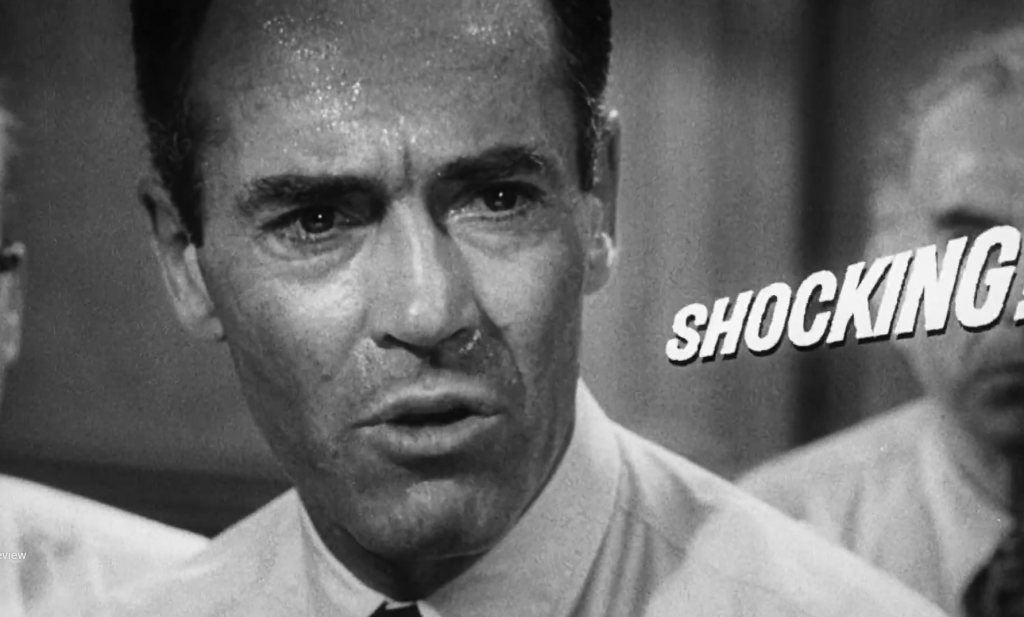 96min. Orion-Nova Productions. New York City. Available for purchase on YouTube.
96min. Orion-Nova Productions. New York City. Available for purchase on YouTube.
Other film(s): The Seventh Seal [trailer] (96min. Filmstaden. Stockholm, Sweden.) Set in Sweden during the Black Death, it tells of the journey of a medieval knight (Max von Sydow) and a game of chess he plays with the personification of Death (Bengt Ekerot), who has come to take his life. I would not hesitate to claim Ingmar Bergman as the greatest Swedish writer/director, and this is considered his best film, from career that lasted from 1944-2003. Available for purchase on YouTube.
The Cranes are Flying [trailer] (96min. Mosfilm. Moscow, USSR.) Veronica plans a rendezvous with her lover, Boris, at the bank of river, only for him to be drafted into World War II shortly thereafter. Mikhail Kalatozov’s first post-Stalinist film. I highly recommend his 1964 film Soy Cuba (trailer), as well.
World events in 1957: The H2N2 influenza claims over a million lives worldwide. Dr. Seuss publishes two of his most well known children’s books, The Cat in the Hat followed by How the Grinch Stole Christmas! The Soviet Union launches Sputnik 1, the first satellite. The Kyshtym disaster occurs, at the Mayak nuclear reprocessing plant, USSR, producing “Level 6” INES contamination (just one level below Chernobyl and Fukushima). Births: Steve Harvey. LeVar Burton. Spike Lee. Daniel Day-Lewis. Frances McDormand. Hans Zimmer. Ethan Coen. Nancy Cartwright.
* DISCLAIMERS
As of 2022, most American films made after 1926 are not in the public domain, so for these later 10Y10F decades, full-versions of films will be harder to come by on YouTube.
Other than a couple of classes in college involving film, I fully admit to having no professional training in cinema history. Please let me know if any corrections need to be made, or if you have any other feedback. I usually respond pretty quickly to comments on this site.
YouTube playlist: 10Y10F Part 7: 1948-1957
10Y10F Series:
I 1888-1897, II 1898-1907,
III 1908-1917, IV 1918-1927,
V 1928-1937, VI 1938-1947,
VII 1948-1957 …
